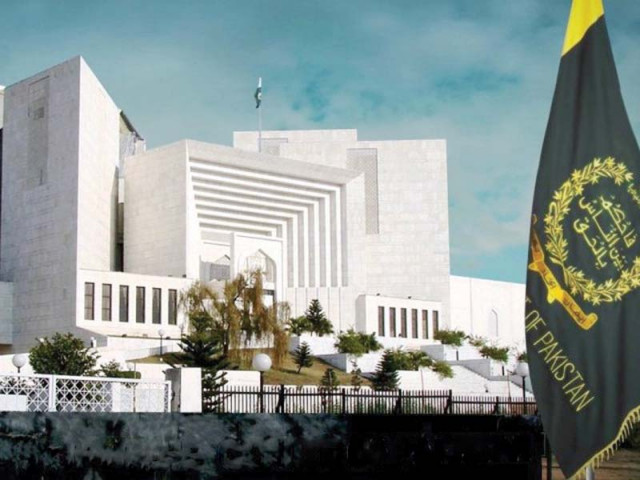Harsh justice: SC asks trial court judges to stay within legal bounds
Top court takes notice of punishment awarded to death-row convict

AAG admits to having loopholes in CSB promotion criteria. PHOTO: EXPRESS
Finding the lower courts judges awarding punishment beyond the legal limits, the Supreme Court has sent directions to registrars of the Sindh High Court, Peshawar High Court, Balochistan High Court, Lahore High Court and Islamabad High Court to direct respective trial courts functioning under them to abide by these directions.
A three-judge bench of the Supreme Court headed by Justice Dost Muhammad Khosa and included Qazi Faez Isa and Faisal Arab, while taking up a criminal appeal, wrote in their order, “We are consistently confronted with this kind of illegality committed by trial courts that in default of payment of compensation amount in many cases rigorous imprisonment and that too of more than six months is awarded like in this case which also escaped the notice of the appellate court.
“The office is directed to send the copy of this judgment to the registrars of all high courts with the purpose to issue instructions to all trial courts in this regard to take pain by reading Section 544-A of the Criminal Procedure Code; otherwise, this court would be left with no alternative but to pass adverse remarks against trial court judges to be placed on their service filed”.
This observation by the Supreme Court is not only an observation against the functioning of trial courts but also against high courts that used to ignore this fact while hearing appeals against orders of trial courts.
According to Section 544-A of Criminal Procedure Code 1898, when a person is convicted of an offence of death, hurt, injury, mental anguish or psychological damage to any person, the court while convicting the person also would order him to pay to the bereaved family or to the person hurt, injured, or mentally disturbed such compensation as the court may determine. In default of payment, the recovery shall suffer imprisonment maximum for six months.”
There is no legal provision for rigorous imprisonment but many trial courts are found awarding imprisonment for more than six months and that too rigorous, which is beyond the legal limits.
The Supreme Court took the notice in appeal of Ghulam Abbas, who was awarded death sentence and three years’ rigorous imprisonment in default of paying the fine.
The court reduced his death sentence to life imprisonment and three years rigorous imprisonment to six months simple imprisonment.
Advocate Tipu Salman Makhdoom, while talking to The Express Tribune, said according to Section C(5) of the National Judicial Policy 2009, it was the duty of the chief justices and judges of high courts to monitor working of the subordinate judiciary.
According to Section C(4) of NJP, Members Inspection Team cells of high courts should examine judgments of judicial officers of the subordinate judiciary to detect any illegality, he said.
“Such illegality on the parts of the judges is perplexing,” Tipu said, asking, “If these directions of the Supreme Court would be acted upon in the future, then what will be [the case of] those who were awarded illegal punishments in the past and have been facing the brunt of the illegality committed by the judges?”
Published in The Express Tribune, March 16th, 2017.



















COMMENTS
Comments are moderated and generally will be posted if they are on-topic and not abusive.
For more information, please see our Comments FAQ